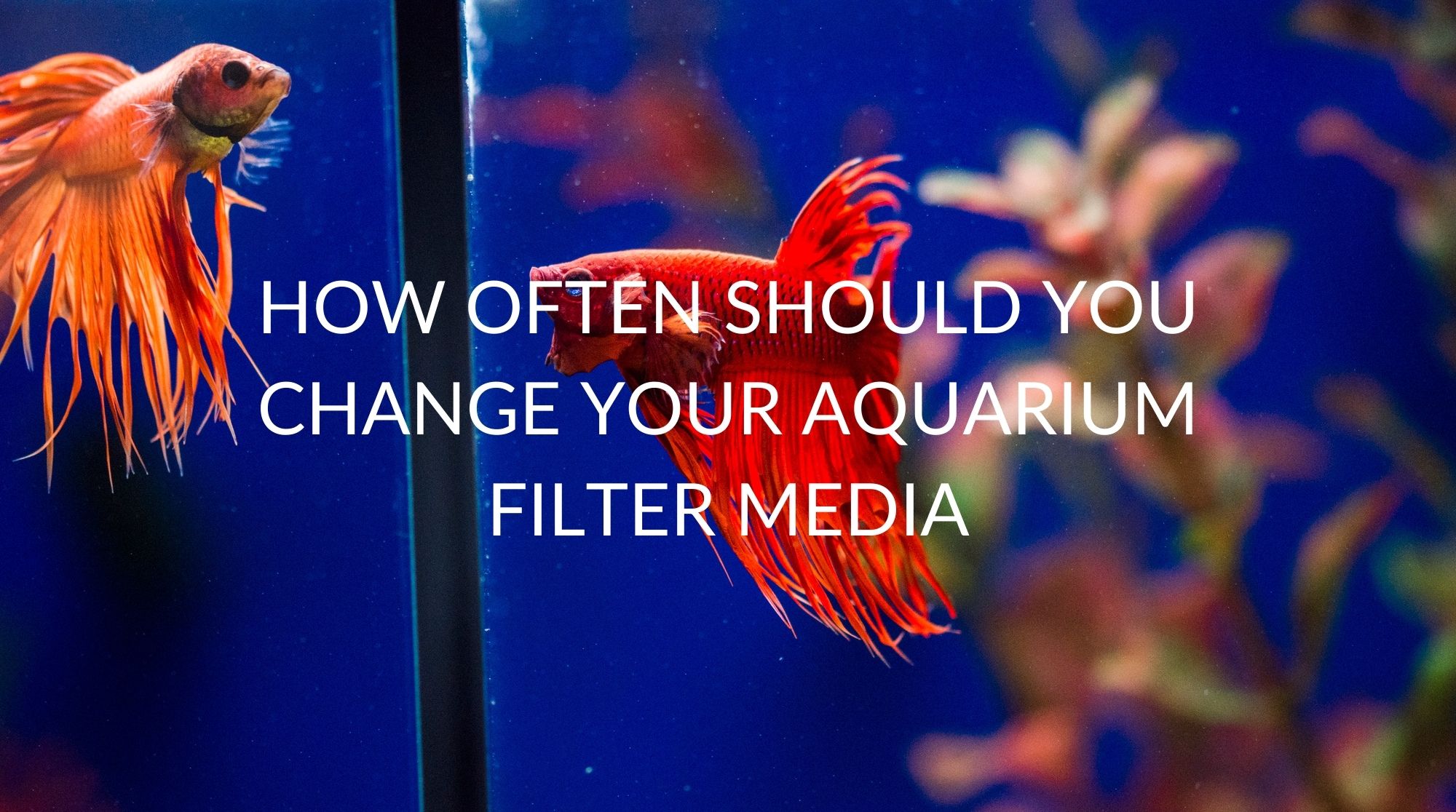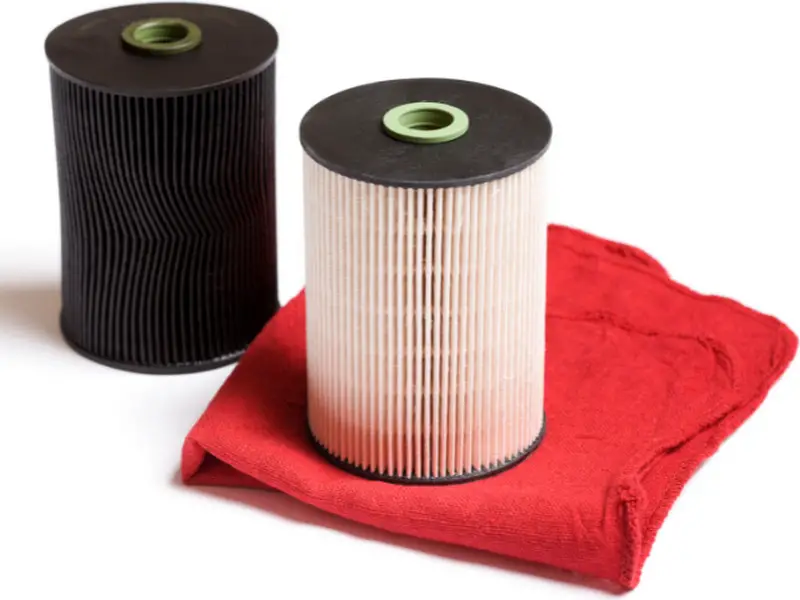Aquarium filters are one of the most important components of maintaining a healthy aquatic environment for fish and other aquatic creatures. However, many aquarium hobbyists often overlook the importance of changing their filters regularly. In this article, we will explore the question of how often to change aquarium filters and the impact it can have on the overall health of your aquatic pets.
Proper filtration is essential for keeping your aquarium clean and healthy. It helps to remove excess waste, debris, and harmful chemicals from the water. However, if the filter is not changed regularly, it can become clogged and lose its effectiveness. This can lead to poor water quality, which can have a negative impact on the health of your fish and aquatic plants. So, let’s dive in and learn more about the importance of changing your aquarium filter regularly.

How Often to Change Aquarium Filter?
Aquarium filters are essential for maintaining a healthy and clean environment for your fish. However, they do not last forever and need to be replaced periodically. The frequency of replacing the filter depends on several factors, including the type of filter, the size of the aquarium, and the number of fish in it.
Factors that Affect the Frequency of Changing Aquarium Filters
The following are the factors that affect the frequency of changing aquarium filters:
Type of Filter
Different types of filters have varying lifespans. For instance, mechanical filters, which trap debris and waste in the water, need to be cleaned or replaced every two to four weeks. Chemical filters, which remove impurities from the water, need to be replaced every month. Biological filters, which help establish a healthy bacterial colony in the aquarium, do not require frequent replacements unless they are damaged or clogged.
Size of Aquarium
The size of the aquarium is another critical factor that affects the frequency of filter replacement. The larger the aquarium, the longer the filter will last. Smaller aquariums tend to accumulate waste and debris faster, which means that the filter will need to be replaced more frequently.
Number of Fish
The number of fish in the aquarium directly affects the frequency of filter replacement. The more fish there are, the more waste they produce, and the more often the filter will need to be replaced. Overcrowding the aquarium can also lead to increased waste production, which means that the filter will need to be replaced more frequently.
Benefits of Regularly Changing Aquarium Filters
Regularly changing aquarium filters has numerous benefits. Here are some of them:
Maintain Water Quality
Changing the filter regularly helps maintain the water quality of the aquarium. Accumulated waste and debris can lead to poor water quality, which can harm fish and other aquatic life.
Prevent Disease
A dirty filter can harbor harmful bacteria, fungi, and parasites, which can lead to diseases in fish. Regular filter changes help prevent the buildup of these harmful organisms.
Extend the Life of Aquarium Equipment
A dirty filter can put a strain on other aquarium equipment, such as pumps and heaters, causing them to wear out faster. Regular filter changes help extend the lifespan of these devices.
Conclusion
In conclusion, the frequency of changing aquarium filters depends on several factors, including the type of filter, the size of the aquarium, and the number of fish in it. Regularly changing the filter helps maintain the water quality, prevent disease, and extend the lifespan of aquarium equipment. As a general rule of thumb, it is recommended to replace the filter every two to four weeks for mechanical filters, every month for chemical filters, and every few months for biological filters.
Frequently Asked Questions
1. How often should I change my aquarium filter?
It is recommended to change your aquarium filter every 2-4 weeks. However, the frequency of filter changes may vary depending on the size of your aquarium, the type of filter you are using, and the number of fish in your tank. If you have a larger aquarium or more fish, you may need to change your filter more frequently.
It is important to monitor the water quality in your aquarium regularly. If you notice a decrease in water clarity or an increase in ammonia or nitrate levels, it may be time to change your filter. Additionally, if your filter is visibly dirty or clogged, it should be changed immediately.
2. What happens if I don’t change my aquarium filter?
If you neglect to change your aquarium filter, the water quality in your tank will begin to deteriorate. This can lead to an increase in harmful toxins such as ammonia and nitrite, which can be harmful to your fish. Additionally, a dirty filter can become clogged, which can reduce water flow and oxygenation in your tank.
Over time, poor water quality can lead to a variety of health problems for your fish, including stress, disease, and even death. It is important to maintain a regular schedule of filter changes to ensure a healthy and thriving aquarium environment.
3. Can I clean my aquarium filter instead of replacing it?
Yes, you can clean your aquarium filter instead of replacing it. In fact, it is recommended to clean your filter regularly to maintain optimal water quality in your tank. To clean your filter, simply remove it from the tank and rinse it thoroughly in a bucket of aquarium water.
Avoid using tap water or cleaning products, as this can harm the beneficial bacteria in your filter. It is also important to replace any filter media that has become clogged or worn out, as this can reduce the effectiveness of your filter.
4. What type of filter is best for my aquarium?
The type of filter that is best for your aquarium will depend on the size of your tank, the type of fish you have, and your personal preferences. There are several types of filters available, including hang-on-back filters, canister filters, and sponge filters.
Hang-on-back filters are a popular option for smaller aquariums, while canister filters are ideal for larger tanks with more fish. Sponge filters are great for breeding tanks or tanks with delicate fish, as they provide gentle filtration without disturbing the water too much.
5. Can I use multiple filters in my aquarium?
Yes, you can use multiple filters in your aquarium. In fact, using multiple filters can be beneficial for maintaining optimal water quality in your tank. By using different types of filters, you can ensure that all areas of your tank are effectively filtered.
However, it is important to avoid over-filtering your tank, as this can create too much water flow and disturb your fish. It is recommended to use no more than 1.5-2 times the recommended filtration capacity for your tank size. Additionally, be sure to monitor the water flow and adjust your filters as needed to maintain a healthy and balanced aquarium environment.

Clean Your DISGUSTING Aquarium Filter, When, How And Why
In conclusion, changing your aquarium filter is an essential part of maintaining a healthy aquatic environment for your fish. The frequency of filter changes depends on the size of your tank, the type of filter, and the number of fish you have. It’s recommended to change the filter every two to four weeks for most tanks.
However, it’s important to monitor the quality of the water and adjust the frequency of filter changes accordingly. If you notice a decrease in water quality or an increase in waste, it may be necessary to change the filter more frequently.
Remember, a clean and well-maintained filter not only benefits your fish but also promotes a healthy and beautiful aquarium. So, make sure to stay on top of your filter maintenance and enjoy the beauty of your aquatic world.
